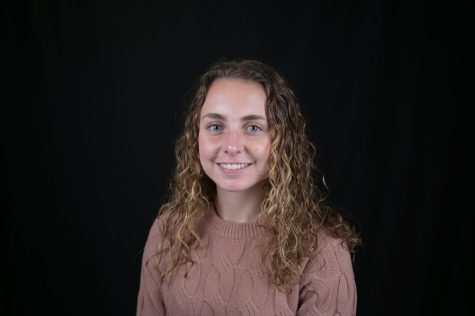
Stephanie Ramsey is currently a senior at Tyrone Area High School. This is Stephanie's first year on the Tyrone Eagle Eye News team. She is a studious...
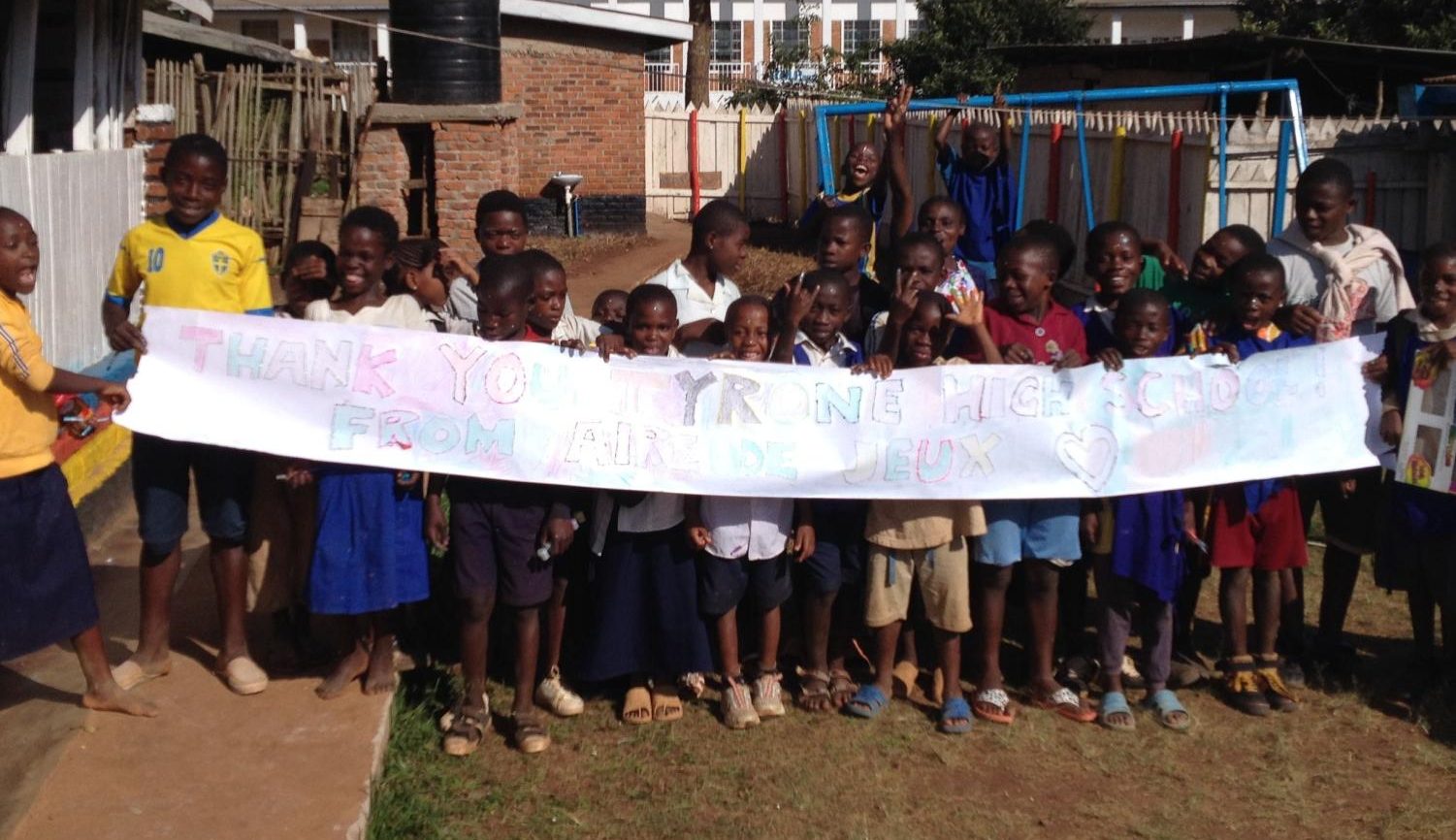

January 21, 2022
Tyrone Area High School’s Youth Action Network student service organization (YAN) will hold its annual campaign to raise money for the Panzi Hospital in the Democratic Republic of the Congo from January 24th to February 4th.
While many students know about this annual fundraiser, many are unaware of its history and Tyrone High School’s long-running connection with the Panzi Organization and its founder, 2018 Nobel Peace Prize winner Dr. Denis Mukwege.
Tyrone High School was one of the first organizations in the United States and is currently the only high school student group in the world to support the hospital on an annual basis.
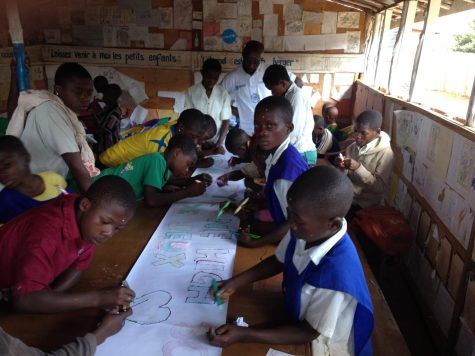
Students Mrs. Tracy Redinger’s world cultures class learn about the hospital and its mission. Redinger’s class goes in-depth about current issues in central Africa, including the wars and genocides that have occurred in the DRC.
In addition, students learn about the Panzi Hospital and the efforts Dr. Dennis Mukwege has made to impact the Congo community for the better.
“I think it’s important for students to learn about other cultures and how other people live in order to become a better global citizen,” said Redinger. “Someone who is aware of human rights violations, what people can do to be a part of the solution, and to understand the circumstances that create these situations and, perhaps, how they can be prevented in the future.”
Students watch numerous films and documentaries to understand the significance of the conflict in the Congo and its human toll.
“Sometimes a visual portrayal of what is happening or has happened can leave a lasting impression and speak (maybe even awaken) part of our senses and emotions to be more empathetic towards other human beings and what they are experiencing,” added Redinger.
The films left a lasting impression on Mrs. Redinger’s students.
“Watching the films in World Cultures really helped myself and others around me to open our eyes to the intense obstacles other places in the world face,” said senior Drue Christine, who watched the films this past spring.
Donation cans will be placed in all social studies classrooms: Mrs. Burket, Mr. Cammarata, Mr. Elder, Mr. McNitt, and Mrs. Redinger. The classroom that can raise the most pennies and the most money overall will receive a prize from YAN. Pennies score a point each, but any denomination other than a penny (dollar, nickels, quarters, etc.), takes the same point value away from the penny count. All proceeds are donated to the Panzi Hospital.
YAN, or the Youth Action Network, is a student organization that was formed in the fall of 2009. The group seeks to educate the student body and local community on local, national, and international issues; as well as work collaboratively with organizations and individuals locally and globally to put service in action by raising money for worthy causes.
YAN is sponsored by the Tyrone Area School District and is composed of high school students determined to make a difference in the world they live in. The group works to advocate awareness of the events happening in the world around them. The members within the group focus on raising a level of empathy among their student body and their community.
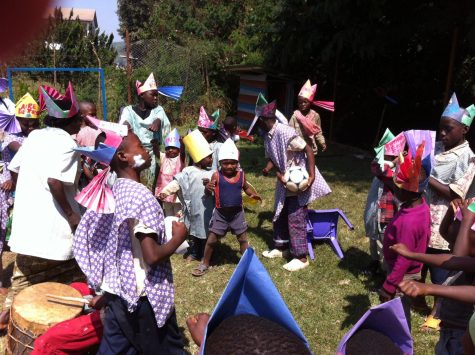
When YAN was first introduced to the Tyrone Area School District, they joined a county-wide effort to form clubs similar to YAN in all of Blair county. Tyrone holds the only remaining organization today.
YAN has contributed to the recovery of tragic events, including their first humanitarian efforts to help non-governmental organizations with the genocide in Darfur.
Throughout the years, YAN has sponsored many guest speakers to educate Tyrone students on issues in central Africa, including John Bul Dao, one of the “lost boys of Sudan,” Invisible Children, an organization formed to help the youth of Central Africa and to fight Joseph Kony’s army, Carl Wilkins, the only American to remain in Rwanda throughout the Rwandan genocide, and OmeKongo Dibinga, an educator and rapper who brings greater awareness to global humanitarian issues through his teachings and music.
Some of the most impactful speakers that have spoken at student assemblies have been Dr. Lee Ann DeReus and Peter Frantz, co-founders of the Panzi Foundation, and Emily Warne and Tony Gambino of the Panzi Foundation.
Dr. Dennis Mukwege is a world-renowned gynecologist and human rights activist from the Democratic Republic of the Congo. On top of his amazing medical achievements, he is a Nobel Peace Prize recipient for his campaigns against rape as a weapon of war. YAN has been working with him since 2012.
As a child, Mukwege had the opportunity to travel with his father to visit sick and dying patients in Bukavu, DRC which left a prominent impact on his life. There he saw a terminally ill boy, but unfortunately, could do no more for him than pray. Mukwege wanted to make a difference in the world by doing more than just praying.
Many of the patients he saw in Bakavu were women in labor who had nowhere to safely deliver their babies, so Mukwege decided he wanted to be a doctor who focused on delivering babies.
In 1984, Mukwege moved to Angers, France to complete his training as a junior obstetrician. He had spent half of his life savings in hope of this aspiration. Many other challenges presented themselves, making his journey more difficult than it already was. One of these includes not being accepted because of his skin color. He could never stay in an apartment for long because the landlord would make him leave, solely because he was black. Thankfully, other students let him share a living space with them.
A major shock from the European healthcare system was how well equipped they were compared to the DRC. But Mukwege outperformed his co-workers in many ways.
He had gained his previous experience by operating on women and girls under torchlight in the Congo. After receiving his training and returning home, he embarked on a career that would save thousands of lives. Mukwege became a champion for women not only in the DRC but across the world.
Wars have broken out in the African region for decades, especially within the Congo. Due to the high percentage of rape in war, Mukwege began specializing in treating women survivors of wartime rape.
Not only does Mukwege repair the women, but he strives to address the social and political issues that present themselves in this area. These include teaching the women new life skills and enabling them to be self-sustaining. The staff also provides schooling for their children.
In 2012, Mukwege addressed the United Nations, calling on them to make a change within the Congo to help these women.
He has received numerous threats and attempts on his life to his own safety, as well as to his family. He continues to work diligently under tight security at the hospital, sometimes provided by the United Nations. He believes that “we must respond to violence with love.”
He has been honored with the UN Human Rights Prize, the Daily Trust African of the Year award, the Clinton Global Citizen Award, and Olof Palme Prize. His most honorable award was receiving the Nobel Peace Prize for his efforts to end sexual violence as a weapon of war in 2019.
The community of Panzi is a small, impoverished neighborhood on the outskirts of Bukavu. Dr. Dennis Mukwege thought this would be the perfect place to begin his life’s work.
Panzi Hospital opened in 1999 as a gynecology clinic. Mukwege initially wanted to focus on helping women deliver babies, but the first patient was not an expecting mother; it was a rape survivor from the ongoing civil war.
Mukwege and his staff were soon overwhelmed with victims of the conflict, and the injuries were gruesome.
In the beginning, Mukwege was the only experienced physician that was able to treat the women. He began to develop a team to help with the treatments. The hospital began to specialize in treating gynecological trauma.
Over the past two decades, Panzi has expanded to a regional scale and become the primary treatment center for rape victims. Over 85,000 women, experiencing problems from either rape or birth, have been treated by the Panzi Hospital.
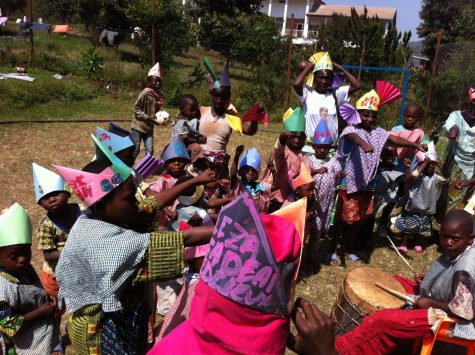
In addition, Panzi’s hospital model allows these females to rebuild their lives while recovering.
The Panzi hospital does not only serve health needs, but also psychological support, legal assistance, and socio-economic support.
As Mukwege said, “We can’t just treat the finger or the ear. We have to see the person as an entire whole.”
Panzi delivers about 3,500 babies per year, and children born at Panzi have a 99.1% survival rate, a very high survival rate coming from the continent with the highest infant mortality rate in the world.
The hospital also now serves the general medical and emergency needs of both genders, from broken bones to cancer patients.
In recent years, the hospital has expanded to reach more people who lack medical care in more rural and underserved parts of the country. They currently have three additional medical centers outside of Panzi, two in rural areas, and one in the capital city of Kinshasa, with plans to expand in the coming years.
“Panzi is replicating its holistic healing model throughout the country by building ‘One-Stop Centers’,” said Panzi Executive Director Emily Warne. “One-Stop Centers are essentially ‘mini-Panzis’ where survivors who are too far away from our flagship hospital can receive holistic care in one location. This mitigates their trauma by ensuring they only have to tell their story once to receive care, rather than travel to multiple health centers or organizations to receive the comprehensive services they deserve.”
The Panzi Hospital is striving to be the future of the African healthcare system, especially in a place where help is needed the most.
Every year, YAN averages between 50-75 student members, including student-elected officers. The group is confident that they have already made a prominent impact on their world, both near and far. To date, YAN has raised approximately $17,000 for the Panzi Hospital.
In addition, YAN has contributed over $1,000 to the local Tyrone Food Bank and $1,350 to the American Red Cross.
The money YAN has donated helps keep stability at Panzi and is used for a variety of things.
Executive Director of the US Office of the Panzi Foundation Emily Warne is one of YAN’s main connections with Panzi. Warne is very grateful for Tyrone’s continued support.
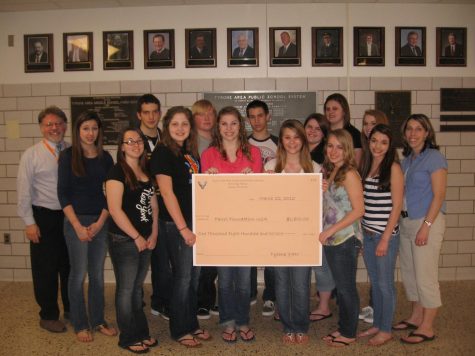
“The donations from Tyrone High School are used for whatever is needed most at that time. That could be anything from procuring personal protective equipment for our staff at the hospital during the pandemic to helping former survivors evacuate from their homes during natural disasters, such as the Mount Nyiragongo eruption last year. The flexibility of donations like those from the Pennies for Panzi campaign allows us to respond nimbly when unexpected situations arise, and we’re grateful for the support of the Tyrone community for so many years,” said Warne.
Recently, YAN also began working with students in the Inuit village in Northern Canada, and the group hopes to create a connection with the Navajo students of New Mexico. Eventually, they hope to extend their efforts to the students of the Democratic Republic of the Congo.
Redinger says it is important to help these people through the kindness and love we as a community can share.
“To see, listen, and engage with those involved in helping defenseless women, children, and communities survive, and hopefully, overcome the hardships they are experiencing is very rewarding,” said Redinger. “We may never meet the people we help support, but to know that our contribution (whatever it may be) touches another’s soul and helps restore their health, their hope, and their future is helping make a difference in humanity. It’s an act of kindness that truly changes the world for the better and helps spread love to others.”
Mr. Cummins McNitt, YAN’s co-leader and history teacher at TASD, feels that his students are learning important lessons while helping others: “The mission of YAN is to educate and to take action on local, as well as international humanitarian issues,” said McNitt. “Personally, I see this as an opportunity to teach both empathy and a greater understanding of international issues that impact on all of humanity.”
When it comes to Dr. Mukwege, he is the perfect example of leadership and is a prime example of someone students should look up to.
“He is truly one of the world’s most exceptional human beings and an example and inspiration to people everywhere,” said McNitt.
YAN may be helping the Panzi Hospital with their funds by making generous donations, but the impact and life lessons the Panzi Hospital has left on YAN members are indescribable.

Stephanie Ramsey is currently a senior at Tyrone Area High School. This is Stephanie's first year on the Tyrone Eagle Eye News team. She is a studious...